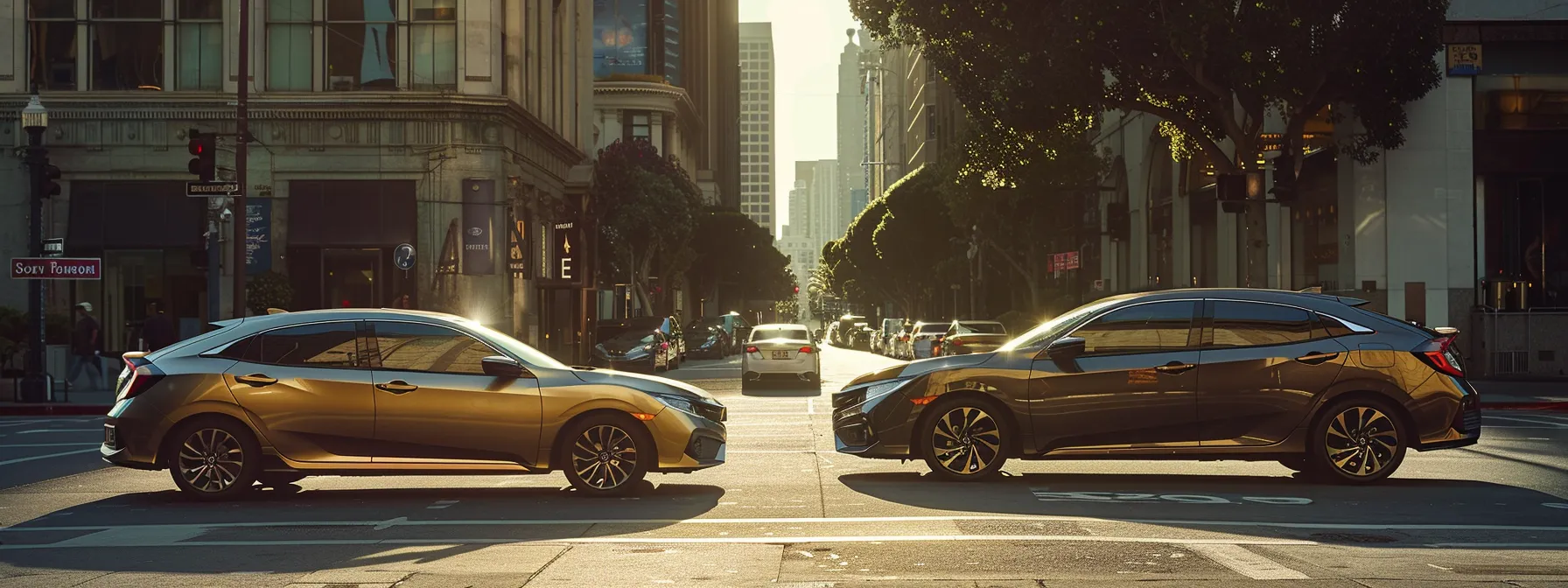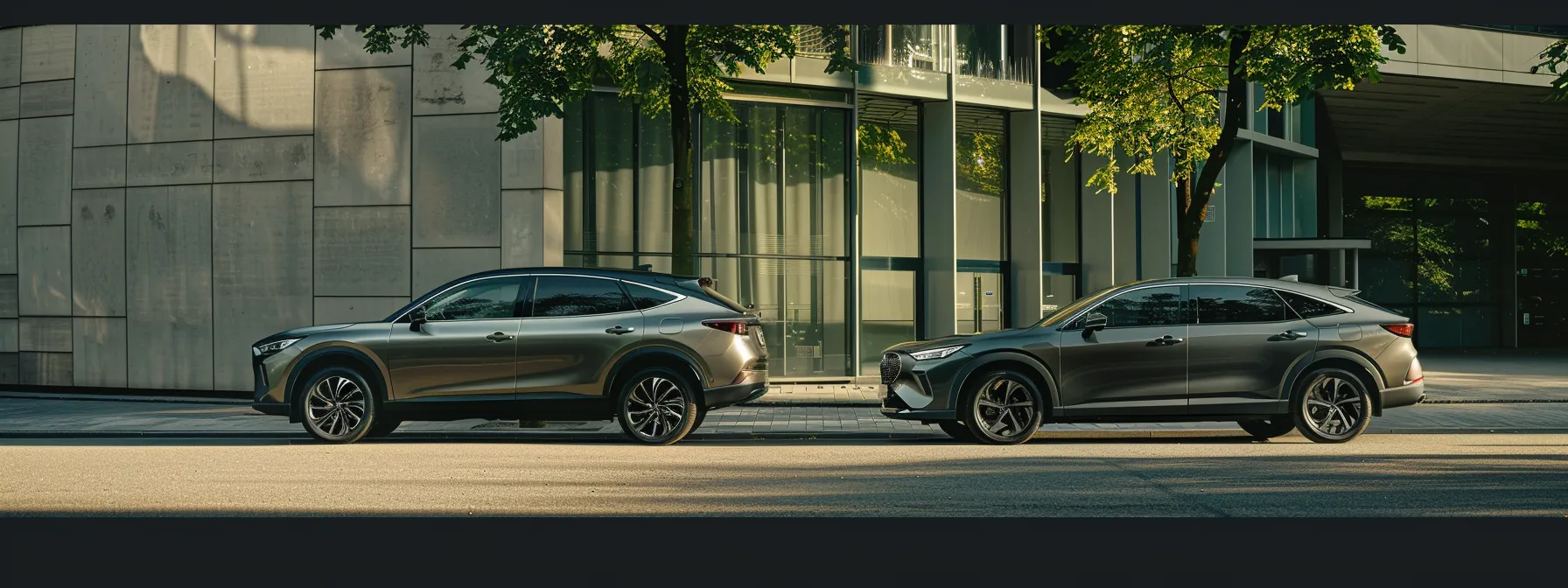Are you curious about how the price of the Honda Civic—whether it’s a sedan, coupe, or hatchback—has changed over time? Understanding Honda Civic valuation trends can help you make informed decisions when buying or selling one of these popular compact cars. In this post, we’ll explore key factors that influence market dynamics, regional variations in values, and how technology impacts valuation trends. By engaging with this content, you’ll gain insights that could save you money and maximize value in your automotive transactions. Let’s tackle the question of how these factors affect your investment in a Honda Civic.
The Evolution of Honda Civic Valuations Over Time

Understanding the evolution of Honda Civic valuations is key to grasping market dynamics. You’ll explore historical pricing trends, the impact of generational shifts on resale value, and significant milestones that affect market perception. Each of these elements reveals how factors like depreciation, model year, and book value shape the current auction landscape.
Historical Pricing Trends of the Honda Civic
The historical pricing trends of the Honda Civic reveal much about its evolution as a vehicle. Over the years, you may have noticed how specific models, like the Honda Civic Si, tend to hold their value better due to their performance-focused engines and enthusiast appeal. Additionally, seasonality plays a role in pricing fluctuations; for instance, you might find that prices dip during winter months but rise again in spring and summer when buyers are more active. Understanding these trends can help you make informed decisions when considering a purchase or sale of a Civic. To learn more about financing options, you can Pre-qualify for financing with Indy Auto Team.
Generational Shifts and Their Impact on Value
As you look at the Honda Civic through the years, each new generation has brought distinct features and technologies that influence its resale value. For instance, models equipped with VTEC engines have become favorites for performance enthusiasts, boosting their popularity and market value. By understanding generational shifts, you can use tools like a best car value estimator to make informed buying or selling decisions, ensuring you’re getting the most out of your investment in a Civic, or even when considering options like the Honda Pilot for your next vehicle.
Significant Milestones Affecting Market Perception
Significant milestones, such as major redesigns or the introduction of popular features, can greatly influence how the market perceives Honda Civics. For example, the launch of the Civic in the 1980s marked a shift towards more fuel-efficient cars, which resonated with budget-conscious buyers, enhancing its reputation and value. Keeping an eye on these milestones through reliable Cars Information can help you understand how specific models may appreciate or depreciate over time, allowing you to make smarter buying or selling decisions.
As the Honda Civic’s value shifted, many wondered why. Let’s uncover the key factors that shape its market today.
Key Factors Influencing Honda Civic Market Dynamics

Economic indicators play a crucial role in shaping the demand and supply for Honda Civics, influencing their overall market valuations. Consumer preferences significantly impact the valuation as buyers seek features that align with their lifestyles. Additionally, new model releases can drive changes in prices for existing vehicles, while external factors, such as fuel prices and regulations, further affect market dynamics. Understanding these elements will help you navigate the valuation trends effectively.
Economic Indicators Affecting Demand and Supply
Economic indicators, such as unemployment rates and consumer confidence, significantly affect the demand and supply of Honda Civics in the market. When the economy is strong and people have job security, you may notice an increase in demand for reliable vehicles like the Civic, leading to higher prices. Conversely, during economic downturns, consumers may tighten their budgets, which can lead to lower resale values and more competitive pricing for used Civics.
Consumer Preferences and Their Role in Valuation
Your preferences as a consumer directly shape the value of Honda Civics in the market. Factors such as fuel efficiency, safety features, and technology integrations are increasingly important today. When you prioritize these aspects, you’re likely to see higher demand for specific models, which can drive up their resale value, making your choice even more significant in your buying or selling decision.
Impact of New Model Releases on Existing Prices
When a new Honda Civic model is released, it often has a significant impact on the prices of existing models. As the latest features and technologies attract attention, you might notice that older models see a decrease in their resale values. For instance, if a new model boasts better fuel efficiency or advanced safety features, buyers may lean towards the new release, leaving previous generations at more competitive prices. Understanding this trend can help you make strategic decisions whether you’re buying or selling a Honda Civic, ensuring you’re aware of how new releases can influence overall market dynamics.
External Factors Such as Fuel Prices and Regulations
External factors such as fuel prices and regulations can significantly influence the valuation of Honda Civics in the market. When fuel prices rise, demand for fuel-efficient models, like the Civic, typically increases, leading to higher resale values. Additionally, changes in environmental regulations can push buyers towards vehicles that meet stricter standards, thereby enhancing the appeal and market price of models known for their efficiency and low emissions.
The Honda Civic’s popularity shifts with market trends. Now, let’s look at how its value varies across different regions and what that means for buyers.
Regional Variations in Honda Civic Values

When considering Honda Civic valuations, it’s essential to understand regional variations that can impact market pricing. You’ll find that urban and rural markets differ significantly, influenced by local economic conditions. Additionally, demand for Civics may vary across regions, affecting values. This section will explore these key factors, helping you gain insights to make informed decisions in your car buying or selling journey.
Comparing Urban and Rural Market Pricing
When you compare urban and rural market pricing for Honda Civics, you’ll notice distinct differences based on local demand and economic conditions. In urban areas, where commuting needs tend to be higher, Civics may see inflated prices due to their reputation for fuel efficiency and reliability. Meanwhile, in rural regions, where larger vehicles might be more popular, you could find better deals on Civics as demand typically decreases, giving you a chance to snag a quality vehicle at a lower price.
Influence of Local Economic Conditions
Local economic conditions significantly affect Honda Civic values, as they dictate supply and demand within different regions. For instance, in areas with lower unemployment rates and growing incomes, you might find stronger demand for reliable, efficient vehicles like the Civic, leading to higher prices. Conversely, in regions facing economic challenges, resale values may decline, allowing budget-conscious buyers like you to find better deals on quality used Civics.
Demand Differences Across Regions
When exploring demand differences across regions for Honda Civics, you’ll find that urban areas typically feature a higher demand due to the need for fuel-efficient, reliable cars that are ideal for city driving. In contrast, rural locations often prioritize larger vehicles, which can result in lower demand for Civics and potentially better deals for you. By understanding these regional dynamics, you can make smarter decisions as you search for your next Civic, saving both time and money in the process.
Values change with the market and the needs of the people. Technology and innovation have become key players in shaping these trends, revealing more than just numbers in the Honda Civic’s worth.
The Role of Technology and Innovation in Valuation Trends

Advanced features in Honda Civics, such as enhanced safety technologies and updated infotainment systems, significantly influence their resale value. You’ll also see the increasing adoption of hybrid and electric models, which cater to environmentally conscious buyers and impact market trends. Lastly, technological obsolescence and depreciation rates play a role in how quickly a Civic’s value can decline, affecting your buying or selling decision.
Effect of Advanced Features on Resale Value
The integration of advanced features in Honda Civics significantly influences their resale value. Cars equipped with modern safety technologies, such as collision avoidance systems and adaptive cruise control, tend to appeal more to buyers, which can result in higher resale prices. When you prioritize a Civic with these enhancements, you’re likely to not only enjoy a safer driving experience but also ensure a better return on your investment when it comes time to sell.
Adoption of Hybrid and Electric Models
The adoption of hybrid and electric models of the Honda Civic has significantly changed how these vehicles are valued in the market. As more buyers prioritize fuel efficiency and environmentally friendly options, Civics with hybrid or electric capabilities often see a boost in their resale values. Being aware of this shift can help you make a smart buying decision, ensuring you choose a model that not only meets your needs but also retains its value well over time.
Technological Obsolescence and Depreciation Rates
Technological obsolescence significantly impacts Honda Civic valuations, especially as new features and innovations emerge in the automotive market. For example, if a new Civic model introduces advanced infotainment systems or enhanced safety technologies, older models may quickly lose appeal, resulting in quicker depreciation rates. Being aware of these trends helps you make smarter decisions, ensuring you invest in a Civic that not only meets your immediate needs but also retains its value better over time.
Technology shapes what we value in cars, making each shift significant. Next, let’s look at how the Honda Civic will fare in the future, as we explore what drives its worth.
Forecasting Future Honda Civic Valuation Trends

As you look ahead to future Honda Civic valuation trends, understanding predicted market movements based on current data is essential. You’ll discover how emerging technologies may affect vehicle appeal and what anticipated changes in consumer behavior could mean for resale values. Furthermore, you’ll find strategies to stay ahead in the market, helping you make informed decisions.
Predicted Market Movements Based on Current Data
As you consider future Honda Civic valuation trends, it’s essential to look at current data and emerging technologies shaping the market. With increasing interest in fuel-efficient and electric vehicles, Civics that offer hybrid options may experience higher demand and retain their value better. Additionally, as safety features become more advanced, models equipped with the latest technology could also see a boost in their resale prices, making it vital for you to stay informed about what features are trending.
Potential Impact of Emerging Technologies
As emerging technologies continue to reshape the automotive landscape, you can expect their impact on Honda Civic valuations to be significant. For instance, advancements in electric and hybrid technologies are making these models increasingly attractive to environmentally conscious buyers, which helps maintain their resale values. Additionally, features like advanced driver-assistance systems can enhance safety and appeal, ensuring that Civics equipped with the latest innovations hold their value better over time, ultimately benefiting your investment in the vehicle.
Anticipated Changes in Consumer Behavior
As you navigate the evolving landscape of Honda Civic valuations, it’s important to recognize anticipated changes in consumer behavior. Buyers are increasingly prioritizing sustainability, leading to a surge in demand for hybrid and electric models that offer fuel efficiency and lower emissions. This shift in preferences not only enhances the appeal of these vehicles but also influences their resale values, making it essential for you to consider environmentally friendly options when you’re looking for your next Civic.
Strategies to Stay Ahead in the Market
To stay ahead in the market and navigate Honda Civic valuation trends effectively, you should keep an eye on upcoming models and industry innovations. By researching and understanding new features and technologies being integrated into Civics, you can make more informed buying or selling decisions that align with market demands. Additionally, engaging with local vehicle communities or forums can provide valuable insights and tips from fellow buyers and sellers, helping you to identify the best timing for your next Civic transaction.
The Honda Civic is more than just a car; it’s a smart investment worth understanding. To get the most from your Civic, whether you’re buying or selling, it’s essential to know how to maximize its value.
Maximizing Value When Buying or Selling a Honda Civic

To maximize value when buying or selling a Honda Civic, you should consider several key aspects. Start by identifying the best time to enter the market, as timing can greatly influence prices. Next, focus on negotiating favorable prices and maintaining your vehicle, which can enhance its resale value. Finally, utilize current market trends to your advantage, ensuring a savvy transaction that meets your needs.
Identifying the Best Time to Buy or Sell
Identifying the best time to buy or sell a Honda Civic can significantly impact your financial outcome. Typically, the spring and summer months see higher demand, as more buyers are out looking for reliable vehicles. If you’re planning to sell, consider listing your car during these months; conversely, if you’re aiming to buy, you might find better deals toward the end of the year when dealerships are eager to clear out inventory for new models.
Tips for Negotiating Favorable Prices
When negotiating for a Honda Civic, start by doing your homework on market prices. Knowing the average selling price for the model you’re interested in can give you a solid baseline for your negotiations. Don’t hesitate to point out any flaws you find during your inspection—that can further justify a lower price. Additionally, be ready to walk away if the deal doesn’t meet your budget, as this shows the seller you’re serious about getting the best value. Being firm yet friendly will help you connect with the seller while maximizing your chances of negotiating a favorable price.
Importance of Vehicle Maintenance on Valuation
Maintaining your Honda Civic is crucial for maximizing its valuation. Regular maintenance not only keeps your vehicle running smoothly but also enhances its resale value by showing potential buyers that the car has been well cared for. For example, a timely oil change, brake inspections, and tire rotations can contribute to a dependable driving experience, making your Civic more appealing in the used car market.
Utilizing Market Trends to Your Advantage
To make the most of your Honda Civic transaction, it’s essential to stay informed about current market trends. By understanding factors like seasonal demand spikes or the release of new models, you can time your purchase or sale for maximum value. For instance, if you notice rising popularity for fuel-efficient models, it might be an ideal moment to sell your Civic, ensuring you capitalize on the heightened interest in vehicles known for their reliability and efficiency.
Conclusion
Understanding Honda Civic valuation trends is essential for making informed buying and selling decisions in the used car market. Historical pricing patterns and generational shifts show how features and consumer preferences shape resale values. Recognizing the impact of economic factors and regional variations further enhances your ability to navigate market dynamics effectively. By staying informed about these trends, you empower yourself to maximize your investment in a Honda Civic, ensuring you make choices that align with current demand and market conditions.
Recent Posts

Honda Civic vs Toyota Corolla: Ultimate MPG Comparison
Are you trying to decide between the Honda Civic and Toyota Corolla for your next car? Both models are known for their reliability and fuel efficiency, but which one truly offers better miles per gallon (MPG)? In this comparison, I’ll break down the official MPG ratings, real-world performance, and the engineering behind their fuel efficiency. [...]

SUV vs Sedan: Analyzing Depreciation Rates Comparison
When choosing a men’s wedding ring, many people overlook titanium, assuming it lacks the elegance of platinum or gold. However, titanium men's rings offer unmatched durability, lightweight comfort, and a modern aesthetic that aligns with today’s wedding ring trends. In this article, you will discover the benefits of titanium wedding bands, including their hypoallergenic properties [...]

Guide to Successful Bad Credit Auto Financing
Are you struggling to finance your car due to bad credit? You're not alone. Many people face challenges when seeking auto financing, but there are options available. In this guide, I will cover how to understand your credit score, explore bad credit auto financing options, and navigate the application process successfully. By the end, you'll [...]
Find the car you need.
At Indy Auto, we are committed to providing you with the best solutions tailored to your driving needs. Whether you’re navigating city streets or cruising down the highway, our dedicated team ensures that you have access to top-quality vehicles, parts, and services that enhance your driving experience.
